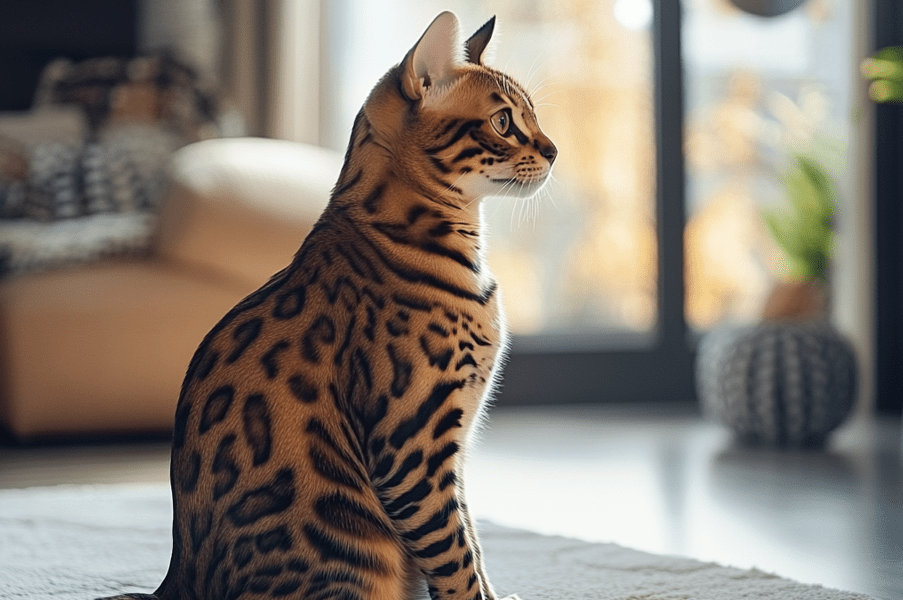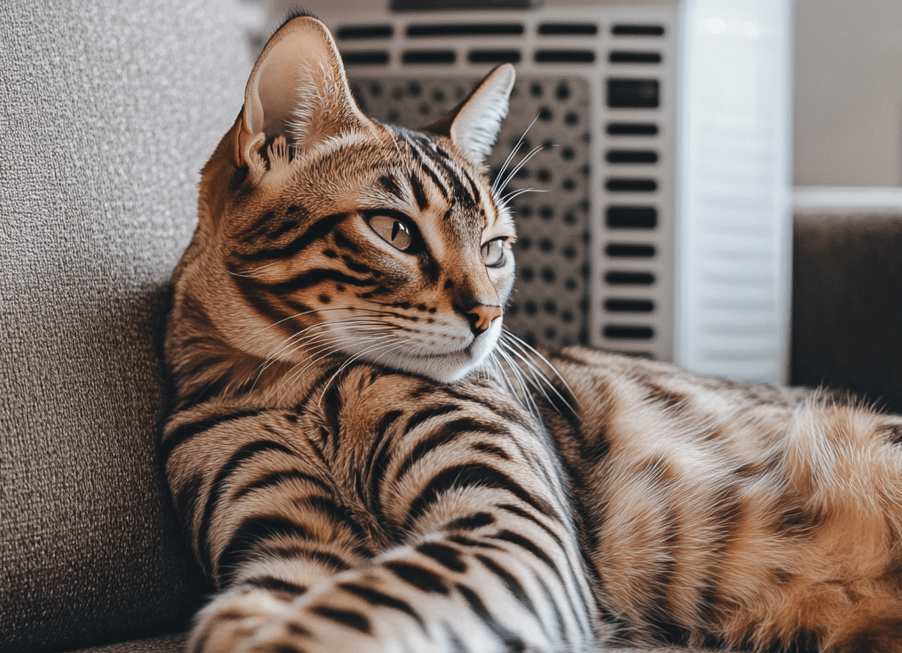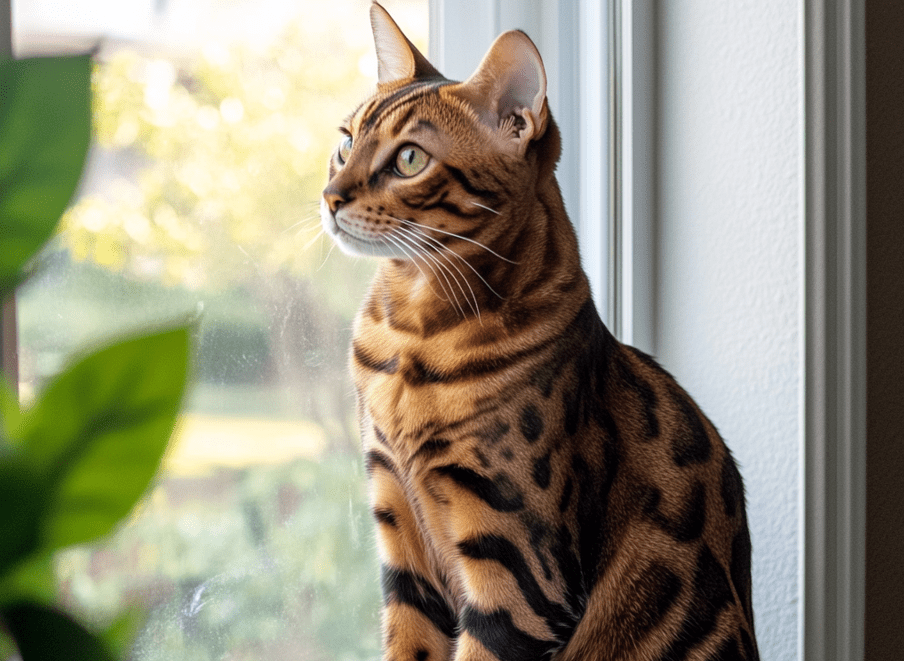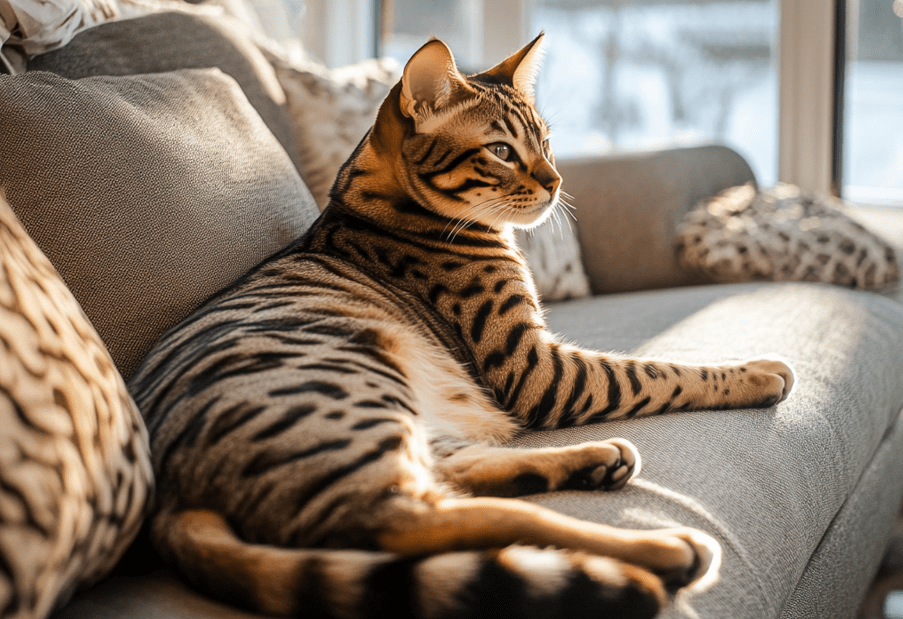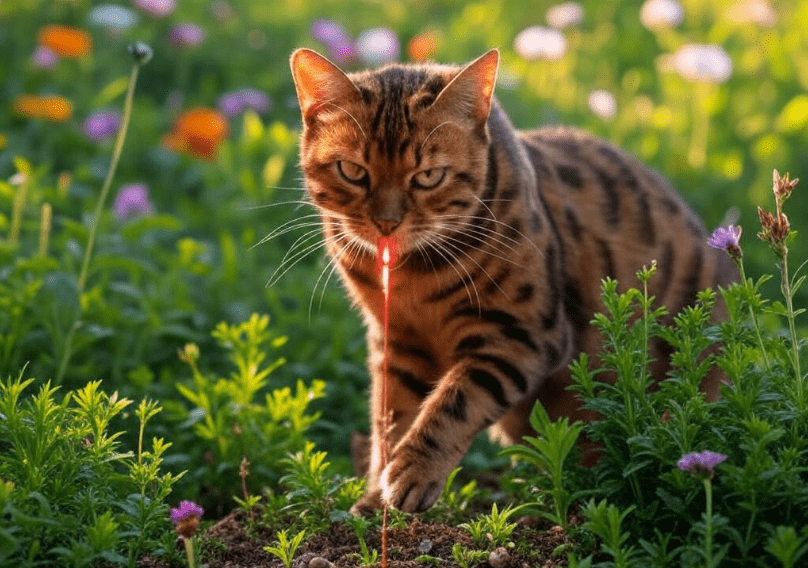
Bengal cats, with their striking leopard-like coats and energetic personalities, are a unique and beloved breed. Ensuring their health and well-being requires regular veterinary care tailored to their specific needs. Bengal cat vet visits are essential for maintaining their vibrant health, catching potential issues early, and providing preventive care. But how often should you take your Bengal cat to the vet? This comprehensive guide explores the ideal frequency of vet visits, the unique health considerations for Bengals, and practical tips to keep your feline friend thriving.
Why Bengal Cat Vet Visits Are Crucial
Bengal cats are known for their playful, active nature and exotic appearance, but their unique genetics also come with specific health considerations. Regular vet visits help monitor their health, address breed-specific issues, and ensure they receive timely vaccinations and preventive treatments. Whether you have a kitten, an adult, or a senior Bengal, a consistent vet schedule is key to a long, healthy life.
Veterinary care for Bengals includes routine checkups, dental care, vaccinations, parasite prevention, and screenings for genetic or breed-related conditions. By prioritizing Bengal cat vet visits, you can catch health problems early, saving your cat from discomfort and potentially reducing long-term costs.
Key Benefits of Regular Vet Visits
Early Detection: Routine exams can identify issues like dental disease or kidney problems before they become severe.
Preventive Care: Vaccinations, flea/tick prevention, and heartworm medication keep your Bengal protected.
Breed-Specific Monitoring: Bengals may be prone to certain conditions, such as hypertrophic cardiomyopathy (HCM) or progressive retinal atrophy (PRA), which require regular screening.
Behavioral Guidance: Vets can offer advice on managing Bengals’ high energy and unique behaviors.
Recommended Frequency of Vet Visits for Bengal Cats
The frequency of Bengal cat vet visits depends on your cat’s age, health status, and lifestyle. Below is a detailed breakdown of how often you should schedule veterinary appointments for your Bengal at different life stages.
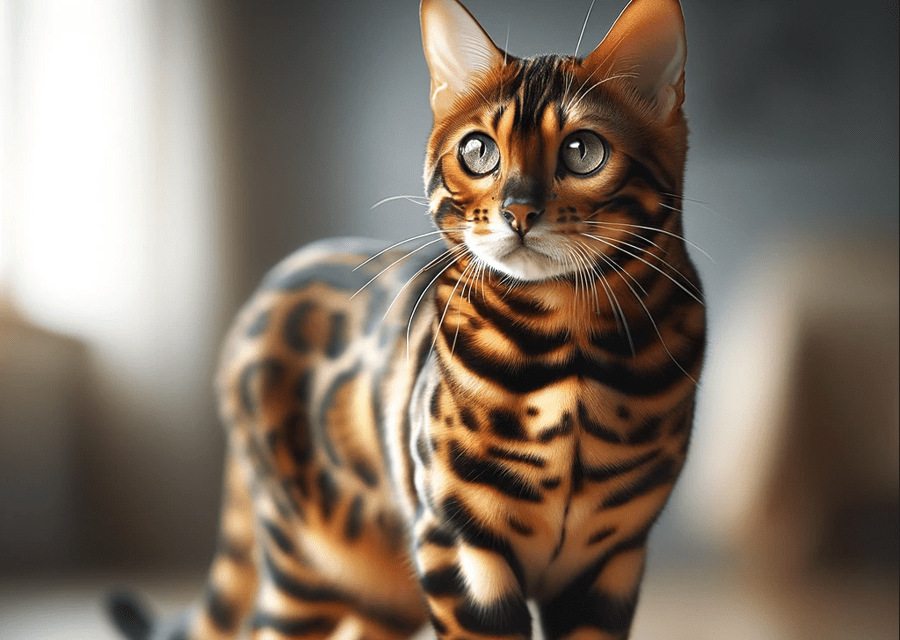
Bengal Kittens (0–1 Year)
Bengal kittens require frequent vet visits to support their rapid growth and development. During their first year, expect to visit the vet every 3–4 weeks until they are about 4–6 months old, then transition to a biannual schedule.
Key Vet Visits for Bengal Kittens
Initial Exam (6–8 weeks): A comprehensive health check to assess growth, screen for congenital issues, and discuss diet and care.
Vaccinations: Core vaccines (FVRCP for feline distemper, calicivirus, and panleukopenia) are administered in a series starting at 6–8 weeks, with boosters every 3–4 weeks until 16 weeks. Rabies vaccines are typically given at 12–16 weeks, depending on local laws.
Deworming: Kittens are prone to intestinal parasites, so deworming treatments are often administered during early visits.
Spay/Neuter (4–6 months): Unless you’re breeding, spaying or neutering is recommended to prevent health and behavioral issues.
Microchipping: Many owners opt to microchip their Bengal during this period for safety.
Tip: Keep a detailed record of your kitten’s vaccinations and treatments to share with your vet. This ensures your Bengal stays on track with their preventive care.
Adult Bengals (1–7 Years)
Once your Bengal reaches adulthood, annual vet visits are typically sufficient for healthy cats. However, Bengals are active and curious, which can expose them to injuries or environmental risks, so stay vigilant for any changes in behavior or health.
What to Expect During Adult Bengal Vet Visits
Annual Checkups: A thorough physical exam to monitor weight, heart, lungs, eyes, ears, and teeth. Your vet may recommend bloodwork or urinalysis to establish a baseline for future comparisons.
Vaccination Boosters: Core vaccines are boosted every 1–3 years, depending on your vet’s protocol and your cat’s lifestyle (indoor vs. outdoor).
Dental Care: Bengals can develop dental issues like gingivitis, so annual cleanings or exams are crucial.
Parasite Prevention: Monthly flea, tick, and heartworm preventives are recommended, especially for Bengals that spend time outdoors.
Screening for Breed-Specific Issues: Your vet may suggest heart screenings (e.g., echocardiograms) to check for HCM, a condition Bengals are predisposed to.
Tip: If your Bengal is particularly active or has access to the outdoors, consider biannual visits to catch any issues related to their adventurous lifestyle.
Senior Bengals (7+ Years)
As Bengals age, their risk of age-related conditions increases, making regular vet visits even more critical. Senior Bengals should see the vet at least twice a year, with additional visits if health issues arise.
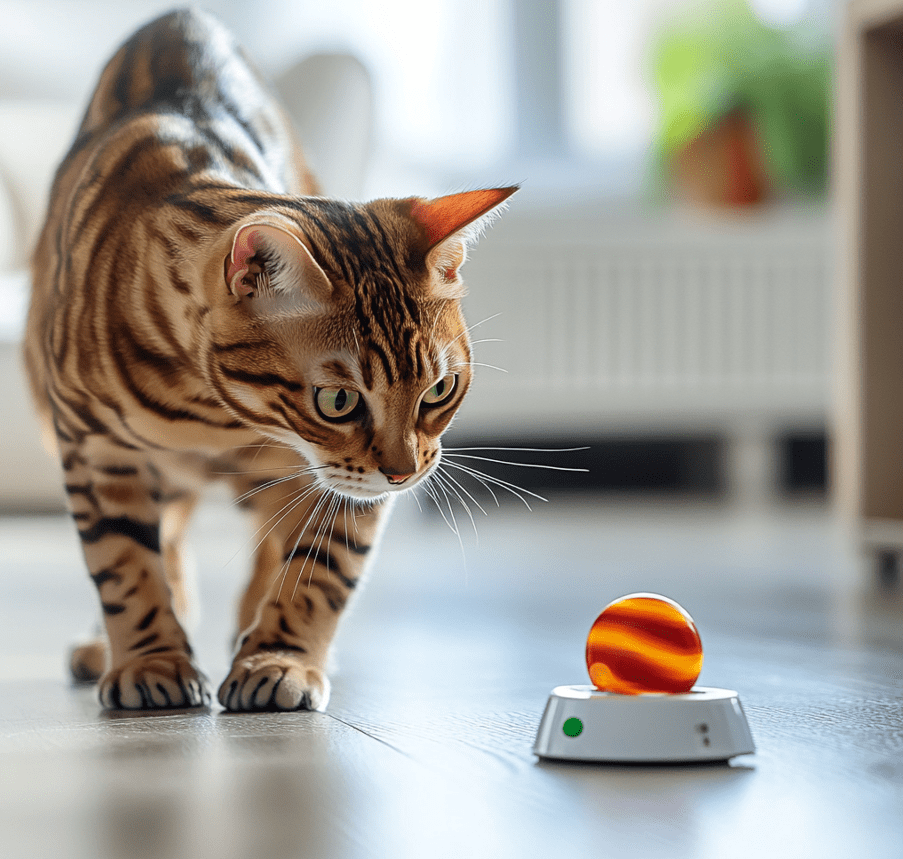
Senior Bengal Vet Visit Focus Areas
Comprehensive Exams: Biannual checkups to monitor for arthritis, kidney disease, hyperthyroidism, or diabetes—common in older cats.
Bloodwork and Diagnostics: Annual or biannual blood panels, urinalysis, and blood pressure checks help detect issues like kidney or liver dysfunction early.
Dental Health: Senior cats are prone to dental disease, so regular cleanings and extractions may be necessary.
Weight Management: Older Bengals may gain or lose weight due to metabolic changes, so your vet can recommend dietary adjustments.
HCM Screening: Continued monitoring for heart conditions is vital, as HCM can develop or worsen with age.
Tip: Watch for subtle signs of aging, such as reduced activity, changes in appetite, or litter box issues, and report these to your vet promptly.
Breed-Specific Health Considerations for Bengals
Bengals are generally healthy, but their hybrid ancestry (from crossing domestic cats with Asian leopard cats) makes them susceptible to certain conditions. Understanding these risks can help you and your vet tailor a care plan during Bengal cat vet visits.
Common Health Issues in Bengals
Hypertrophic Cardiomyopathy (HCM): This heart condition, where the heart muscle thickens, is a leading cause of sudden death in cats. Regular echocardiograms can detect HCM early.
Progressive Retinal Atrophy (PRA): A genetic condition causing blindness, PRA can be screened through genetic testing or ophthalmologic exams.
Patellar Luxation: Some Bengals may experience kneecap dislocation, which can cause limping or discomfort.
Feline Infectious Peritonitis (FIP): While not exclusive to Bengals, their active immune systems may make them more susceptible to this viral disease.
Gastrointestinal Sensitivities: Bengals may have sensitive stomachs, leading to vomiting or diarrhea if their diet isn’t carefully managed.
Preventive Measures
Genetic Testing: Work with your breeder or vet to test for PRA or other hereditary conditions before adopting a Bengal.
Regular Screenings: Schedule heart and eye exams as recommended by your vet, especially for adult and senior Bengals.
High-Quality Diet: Feed a balanced, high-protein diet to support their active lifestyle and reduce gastrointestinal issues.
Stress Management: Bengals are sensitive to environmental changes, so maintain a stable routine to minimize stress-related health problems.
Signs Your Bengal Needs an Unscheduled Vet Visit
While routine Bengal cat vet visits are essential, certain symptoms warrant immediate attention. Bengals are stoic and may hide signs of illness, so watch for these red flags:
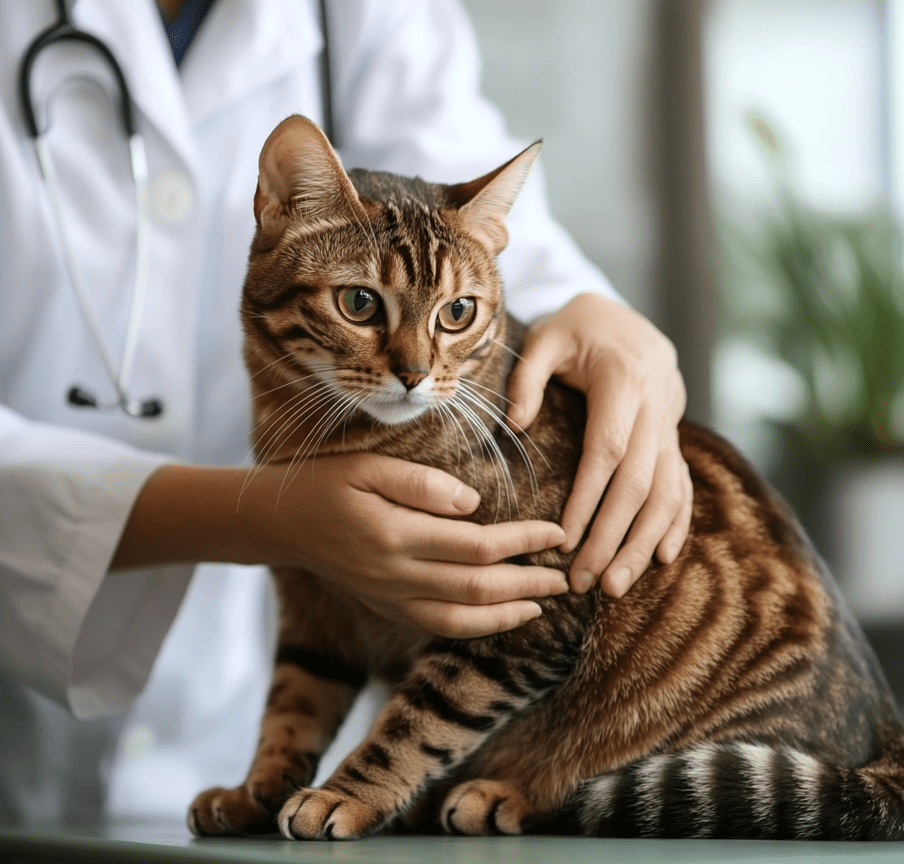
Lethargy or Reduced Activity: A normally energetic Bengal becoming withdrawn or less playful.
Appetite Changes: Refusing food, eating less, or sudden weight loss/gain.
Litter Box Issues: Straining, blood in urine, or avoiding the litter box.
Vomiting or Diarrhea: Occasional vomiting may be normal, but persistent issues require attention.
Respiratory Problems: Coughing, sneezing, or labored breathing.
Skin or Coat Changes: Bald patches, excessive grooming, or dull fur.
Behavioral Changes: Aggression, hiding, or excessive vocalization.
If you notice any of these signs, contact your vet immediately. Early intervention can prevent minor issues from becoming serious.
How to Prepare for Bengal Cat Vet Visits
To make Bengal cat vet visits stress-free for both you and your cat, preparation is key. Bengals are intelligent but can be anxious in unfamiliar settings, so follow these tips:
Before the Visit
Carrier Training: Get your Bengal comfortable with their carrier by leaving it out with treats or toys inside.
Health Records: Bring vaccination records, a list of current medications, and notes on any symptoms or behavior changes.
Diet Details: Be ready to discuss your Bengal’s diet, as nutrition plays a big role in their health.
Questions: Write down any concerns, such as behavior issues or breed-specific health questions, to discuss with your vet.
During the Visit
Stay Calm: Your Bengal will pick up on your emotions, so remain relaxed to keep them at ease.
Observe: Pay attention to the vet’s findings and ask for clarification if needed.
Discuss Preventive Care: Ask about flea/tick preventives, dental care, or screenings relevant to your Bengal’s age and lifestyle.
After the Visit
Follow Instructions: Adhere to any prescribed treatments, medications, or follow-up appointments.
Monitor Your Cat: Watch for changes in behavior or symptoms after vaccinations or procedures.
Update Records: Keep a log of the visit, including diagnoses, treatments, and recommendations.
Cost of Bengal Cat Vet Visits
The cost of Bengal cat vet visits varies depending on location, the type of visit, and your cat’s needs. Here’s a rough estimate of common expenses:
Routine Checkup: $50–$100
Vaccinations: $20–$50 per vaccine
Spay/Neuter: $200–$500
Dental Cleaning: $300–$700
Bloodwork/Urinalysis: $100–$250
Echocardiogram (for HCM): $300–$600
Emergency Visit: $100–$500+
To manage costs, consider pet insurance or a wellness plan offered by your vet. Some plans cover routine care, vaccinations, and even breed-specific screenings, which can be beneficial for Bengals.
Choosing the Right Vet for Your Bengal
Not all vets are familiar with the unique needs of Bengal cats. Look for a veterinarian with experience in feline medicine or exotic breeds. Here’s how to find the right one:
Ask for Recommendations: Check with Bengal breeders, local cat clubs, or online Bengal communities.
Verify Credentials: Ensure the vet is licensed and has a strong background in feline health.
Visit the Clinic: Assess cleanliness, staff friendliness, and how they handle cats.
Discuss Breed Expertise: Ask if the vet is familiar with Bengal-specific conditions like HCM or PRA.
A good vet will take the time to understand your Bengal’s personality and needs, making vet visits a positive experience.
Conclusion
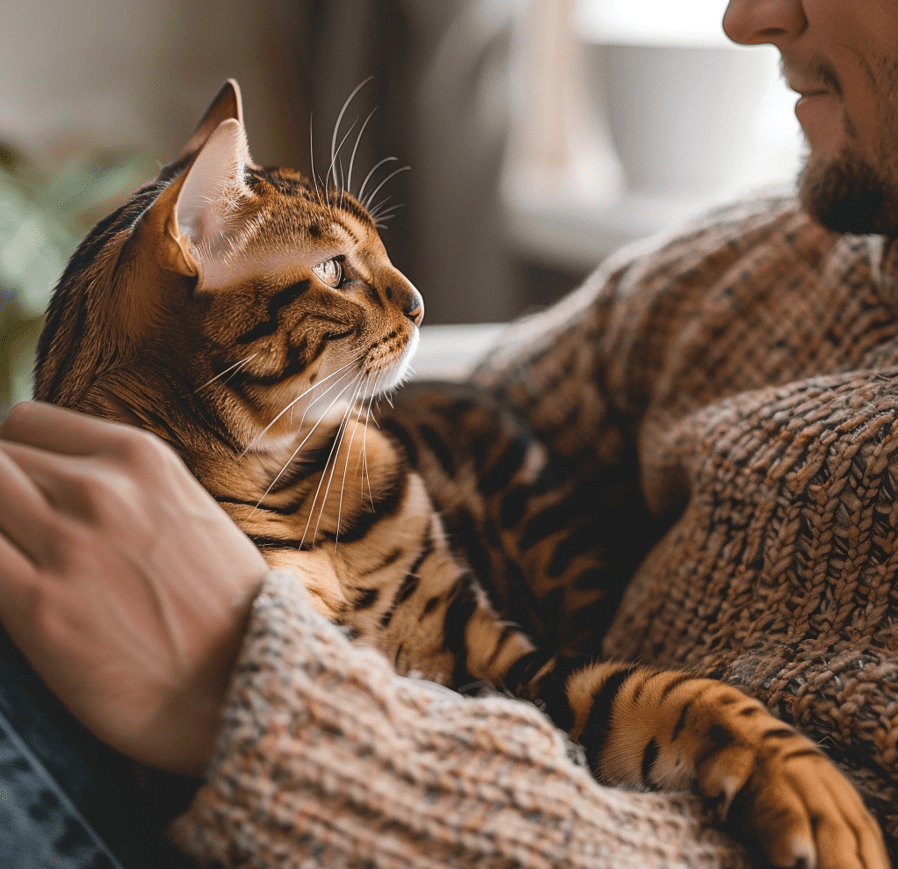
Regular Bengal cat vet visits are the cornerstone of keeping your feline companion healthy and happy. By following a tailored veterinary schedule—frequent for kittens, annual for adults, and biannual for seniors—you can ensure your Bengal thrives at every life stage. Pay attention to breed-specific health risks, watch for signs of illness, and choose a vet who understands the unique needs of Bengals. With proactive care, your Bengal can enjoy a long, vibrant life full of playful leaps and affectionate purrs.
For more information or to find a feline-friendly vet near you, consult with your local veterinary association or Bengal breeder. Your Bengal’s health is worth the investment!

